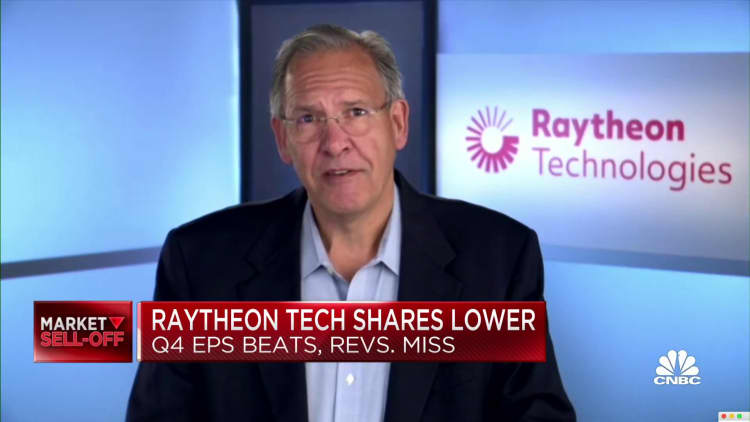Another F-35 Crashes as
Arms Makers and Politicians Profit

“That’s an Expensive Plane You Can’t See.”
(Or Find, It Turns Out)
Win Without War
(September 19, 2023) — The Internet erupted when the Pentagon LOST an $80 million F-35 fighter jet this week.
It was the latest mishap in a program plagued by failure after failure: flawed ejection seats, delays in production, frequent groundings — not to mention that time the plane shot itself.
The F-35 Lightning II fighter jet has become a laughing stock example of Pentagon largesse, but behind the jokes lies a deadly reality. Over the last 20 years, weapons makers have spent $2.6 BILLION lobbying to gain influence. What’s more, last summer an investigation found that at least 25 influential members of Congress who sit on key national security committees hold stock in companies like weapons corporations.
Break that down: Taxpayer money is redistributed to weapons corporations by the same people cashing the war lobby’s checks. It’s corruption, plain and simple — and when you’re talking about weapons and war, the consequences are life or death.
Not many are willing to go up against the enormous influence of a half-a-trillion-dollar industry and its lobbyists, but that’s what Win Without War is built to do. This fall, we’re facing a slew of crucial fights to stop a weapons-and-war-spending spree. It’s all coming to a head in the next few weeks as the fight over the Pentagon budget ramps up, and we need you with us.
Despite overwhelming evidence that spending endless billions on failed fighter jets and unnecessary nukes only drives instability and suffering, year after year lawmakers approve more money for weapons contractors than almost anyone else to ‘keep us safe’.
This year, during the debate on the National Defense Authorization Act, key committees across the House and Senate voted to pour BILLIONS more into the F-35 program — buying planes and parts well above what the Pentagon even asked for.
That includes Rep. Mike Rogers (R-AL), the top Republican on the House Armed Services committee, who is pushing for hundreds of MILLIONS more for a new F-35 engine, even though the Air Force has come out against it.
That’s the same Rep. Rogers who has personally raked in millions of dollars in campaign donations from weapons contractors and their lobbyists over the years, and $394,041 in 2022 alone. That includes thousands from — you guessed it — Lockheed Martin, the maker of the F-35.
It’s because of corruption like this that the average taxpayer paid Pentagon contractors like Lockheed $1,087 last year.
But we’re fighting like hell to turn the tide, if you’re sick and tired of your resources funding failed fighter jets, we need you with us — because Win Without War is determined to get our priorities back in order.
Meet the Congress Members Who Trade
Defense Stocks While Shaping Military Policy
Nick Cleveland-Stout / Responsible Statecraft
(September 18, 2022) — The New York Times reported this week that 97 members of Congress “bought or sold stocks, bonds, or other financial assets that intersected with their congressional work or reported similar transactions by their spouse or a dependent child” between 2019 and 2021. With more than 3,700 such trades in those three years alone, the investigation reveals potential conflicts of interest in nearly every area of policymaking.
Defense policy is no different. At least 25 members sat on committees that shape national security policy while simultaneously trading financial assets in companies that could create competing interests with their work, such as defense stock. With a near-even party split, Democrats and Republicans may have found a rare instance of common ground.
The majority of these members sat on the House and Senate Armed Services Committees — the committees responsible for the budget and oversight of the Department of Defense.
The list includes the former chair of the Senate Armed Services Committee, James Inhofe (R-Okla.), who bought and sold shares of technology companies as they fought over a $10 billion cloud computing contract with the Pentagon, which eventually went to Microsoft.
When the Pentagon later decided to cancel the contract, House Armed Services Committee member Rep. Pat Fallon (R-Texas) sold up to $250,000 worth of Microsoft stock two weeks before it was publically announced. Fallon served on the subcommittee which oversaw the deal, though a spokesperson said at the time that he had “absolutely no prior knowledge the Pentagon intended to cancel” the contract.

Rep. Ro Khanna (D-Calif.)
It also includes Rep. Ro Khanna (D-Calif.), who reported more trades than any other member of Congress. Though they were “made by trusts in the name of his wife and young children,” these trades spanned all of the top five weapons contractors — Lockheed Martin, Raytheon, Boeing, General Dynamics, Northrop Grumman — which could conflict with his role as a member of the House Armed Services Committee.
Khanna has been an opponent of overspending on the Pentagon, an indication that there is not always a straight line between stock ownership and votes on the budget. But that is decidedly not the case with many other members who cash in on defense stocks while wielding power in favor of bigger defense spending.
Members of the Foreign Affairs, Homeland Security, Intelligence, and Appropriations committees also reported trades that could constitute a conflict of interest.

John Rutherford (R-Fla.),
John Rutherford (R-Fla.), for instance, traded Lockheed Martin, Microsoft, and BAE Systems stock while sitting on the House Appropriations subcommittee responsible for determining the Department of Homeland Security’s funding. All three of those companies have been awarded contracts with the Department of Homeland Security. Rutherford then bought Raytheon stock the day that Russia invaded Ukraine, a company that has also been awarded contracts by the Department of Homeland Security.
The New York Times analysis defines a potential conflict of interest fairly narrowly, only focusing on stock trades in companies relevant to committee assignments. Given the daunting task of assembling such a comprehensive list, it is also limited to that three-year span.

Marjorie Taylor Greene (R-Ga.)
As a result, it doesn’t include instances like Earl Blumenauer (D-Ore.) picking up Raytheon stock the day of Russia’s invasion of Ukraine, or Marjorie Taylor Greene (R-Ga.) buying Lockheed Martin stock the day before. By the Times’ own admission, “the analysis is surely an undercount.”
Though all of these lawmakers deny any impropriety, the capacity for competing interests is clear; Congress continues to approve defense budgets beyond what even the Pentagon even asks for, more than half of which goes to private contractors such as Lockheed Martin and Raytheon, which could in turn privately benefit members of Congress invested in those stocks.

Raytheon CEO Greg Hayes.
This could create a perverse incentive structure when taking into account that when global tensions rise, defense stocks tend to follow suit. War is often good for defense companies’ bottom line; Jon Schwartz noted in the Intercept last year that “defense stocks outperformed the stock market overall by 58 percent during the Afghanistan War.” Some members of the defense industry even acknowledge this connection, as Raytheon CEO Greg Hayes did during an earnings call earlier this year:
“We are seeing, I would say, opportunities for international sales. We just have to look to last week where we saw the drone attack in the UAE, which have attacked some of their other facilities. And of course, the tensions in Eastern Europe, the tensions in the South China Sea, all of those things are putting pressure on some of the defense spending over there. So I fully expect we’re going to see some benefit from it.”
Pressure is mounting for Congress to seriously consider self-regulation of stock trading. Seventy percent of Americans support banning lawmakers from trading stocks, including a majority of both Democratic and Republican voters. To date, at least six different bills have been proposed to limit the ability of members of Congress to trade stock.
Despite the popularity of these measures, self-regulation is always a tall order. Senator Tommy Tuberville (R-Ala.) went on record saying that limiting lawmakers’ ability to trade stocks would be “ridiculous” and that “it would really cut back on the amount of people that would want to come up here and serve.” Tuberville himself traded stock of major defense contractors such as Honeywell and General Dynamics while sitting on the Senate Armed Services Committee.
Confidence in Congress sits in the single digits, as overinvestment in the Pentagon has come at the underinvestment in healthcare, education, and addressing the climate crisis. Even if lawmakers defend their trades as routine, the goal should be to eliminate both the appearance and reality of conflict in setting national security priorities.
Our mailing address is: Truthout, PO Box 276414, Sacramento, CA, 95827.
Posted in accordance with Title 17, Section 107, US Code, for noncommercial, educational purposes.